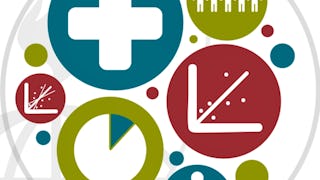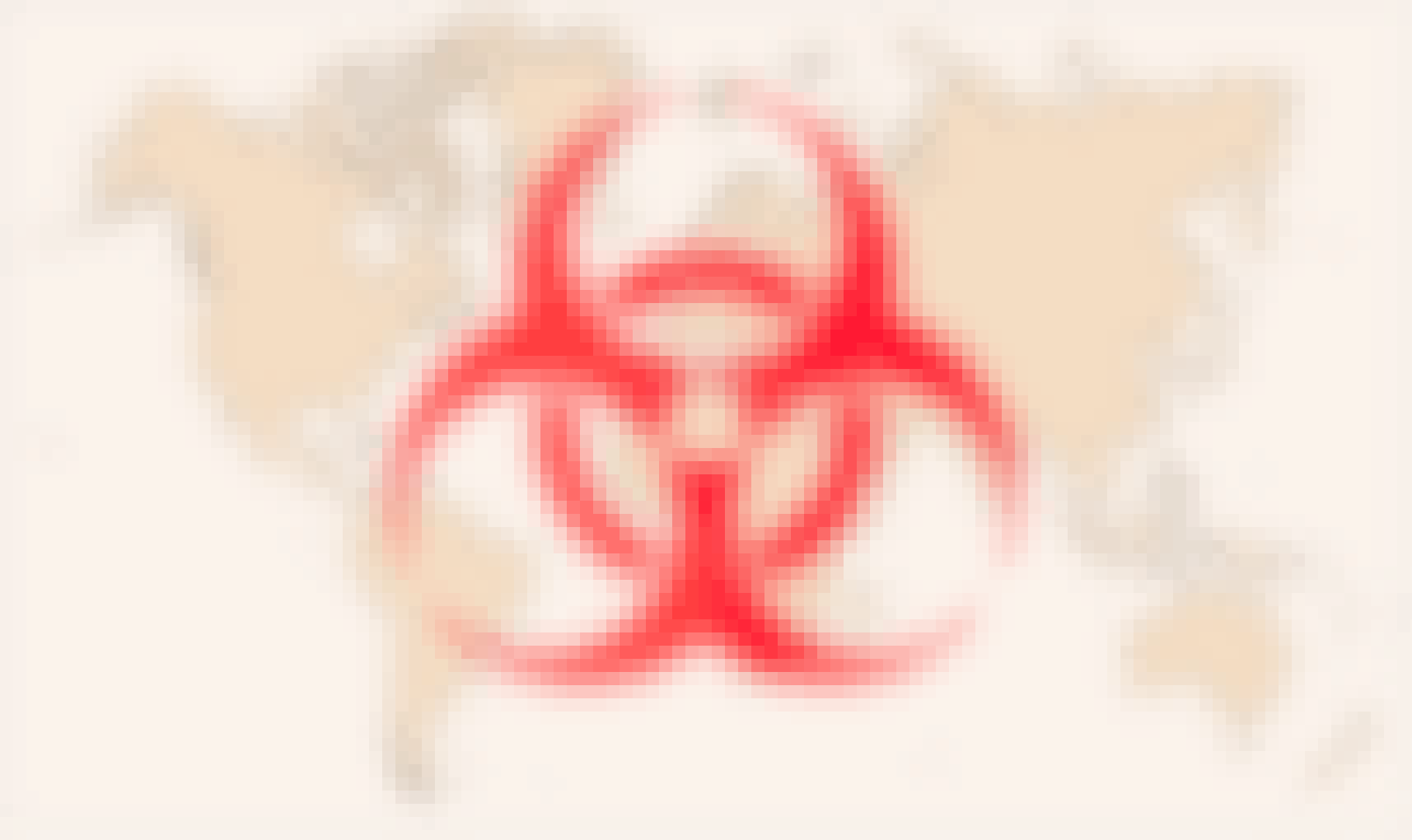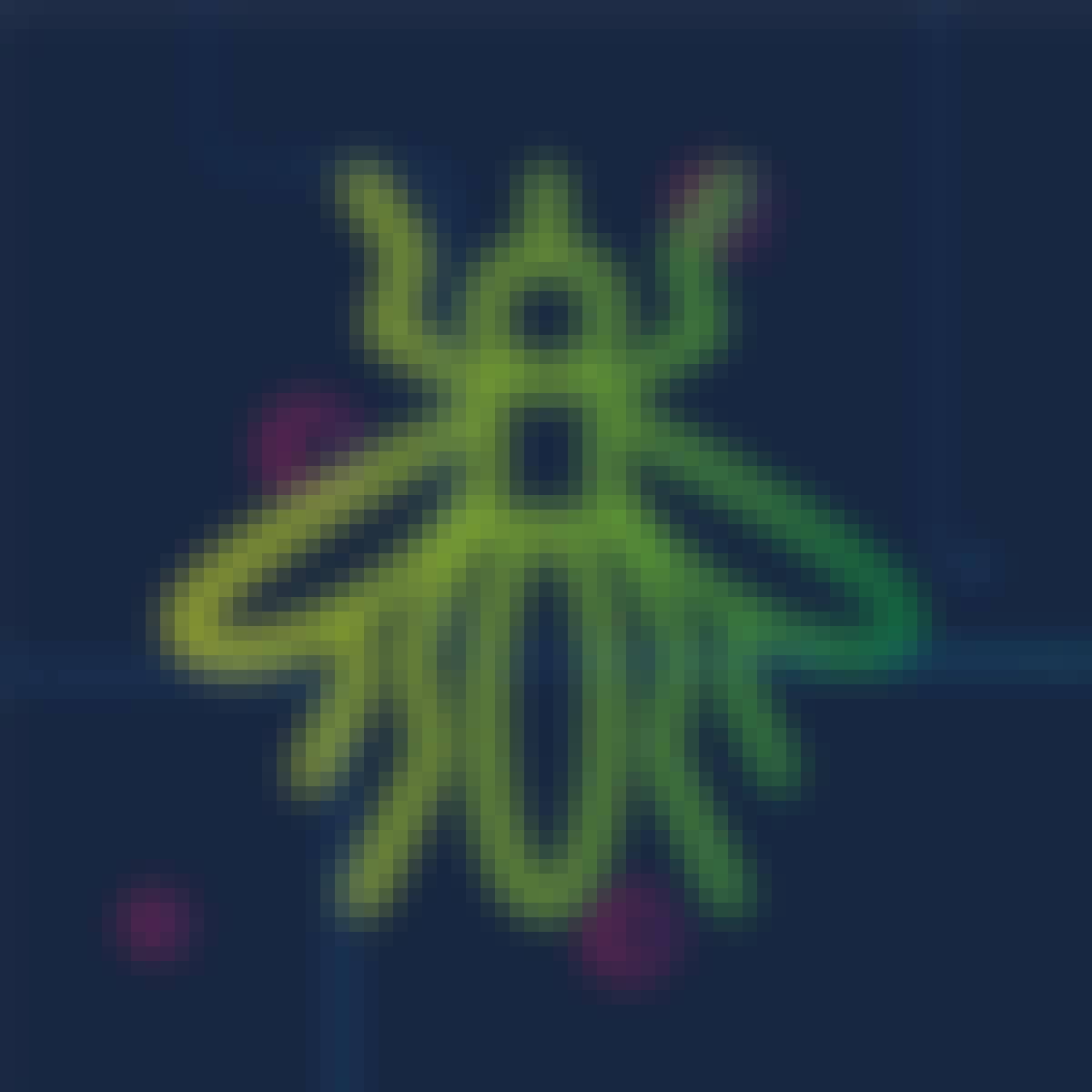- Browse
- Epidemiology
Epidemiology Courses Online
Master epidemiology for studying the distribution and determinants of health and disease. Learn about study design, data analysis, and public health applications.
Filter by
SubjectRequired *
LanguageRequired *
The language used throughout the course, in both instruction and assessments.
Learning ProductRequired *
LevelRequired *
DurationRequired *
SkillsRequired *
SubtitlesRequired *
EducatorRequired *
Explore the Epidemiology Course Catalog
 Status: Free TrialFree TrialJ
Status: Free TrialFree TrialJJohns Hopkins University
Skills you'll gain: Epidemiology, Public Health, Data Presentation, Public Health and Disease Prevention, Trend Analysis, Geographic Information Systems, Health Policy, Data Visualization Software, Chronic Diseases, GIS Software, Health Systems, Infectious Diseases, Biostatistics, Risk Analysis, Investigation, Health Care, Health Disparities, Community Health, Data Analysis, Statistics
4.7·Rating, 4.7 out of 5 stars4.5K reviewsBeginner · Specialization · 3 - 6 Months
 Status: PreviewPreviewT
Status: PreviewPreviewTThe University of North Carolina at Chapel Hill
Skills you'll gain: Epidemiology, Public Health, Infectious Diseases, Research Design, Community Health, Health Policy, Research Methodologies, Social Determinants Of Health, Science and Research, Statistical Analysis, Chronic Diseases
4.7·Rating, 4.7 out of 5 stars5K reviewsMixed · Course · 1 - 3 Months
 Status: Free TrialFree TrialI
Status: Free TrialFree TrialIImperial College London
Skills you'll gain: Epidemiology, Diagnostic Tests, Research Design, Public Health and Disease Prevention, Biostatistics, Clinical Research, Public Health, Preventative Care, Data Collection, Research Methodologies, Program Evaluation, Risk Analysis, Quantitative Research, Health Policy, Correlation Analysis, Statistical Analysis, Statistical Methods, Research, Sample Size Determination, Data Analysis
4.8·Rating, 4.8 out of 5 stars1.2K reviewsBeginner · Specialization · 1 - 3 Months
 Status: Free TrialFree TrialI
Status: Free TrialFree TrialIImperial College London
Skills you'll gain: Research Design, Epidemiology, Biostatistics, Clinical Research, Research Methodologies, Public Health, Statistical Analysis, Sample Size Determination, Data Analysis
4.8·Rating, 4.8 out of 5 stars613 reviewsIntermediate · Course · 1 - 4 Weeks
 Status: Free TrialFree TrialJ
Status: Free TrialFree TrialJJohns Hopkins University
Skills you'll gain: Biostatistics, Statistical Hypothesis Testing, Regression Analysis, Sampling (Statistics), Statistical Methods, Statistical Visualization, Statistical Analysis, Epidemiology, Medical Science and Research, Quantitative Research, Descriptive Statistics, Statistical Inference, Data Literacy, Probability Distribution, Scientific Methods, Statistics, Statistical Modeling, Data Analysis, Probability & Statistics, Public Health
4.8·Rating, 4.8 out of 5 stars2.4K reviewsBeginner · Specialization · 3 - 6 Months
 Status: FreeFreeU
Status: FreeFreeUUtrecht University
Skills you'll gain: Epidemiology, Clinical Research, Medical Science and Research, Diagnostic Tests, Clinical Trials, Patient Evaluation, Public Health, Patient Treatment, Risk Analysis
4.7·Rating, 4.7 out of 5 stars374 reviewsIntermediate · Course · 1 - 3 Months
What brings you to Coursera today?
 Status: PreviewPreviewT
Status: PreviewPreviewTThe Pennsylvania State University
Skills you'll gain: Infectious Diseases, Epidemiology, Public Health and Disease Prevention, Microbiology, Public Health, Pathology, Immunology, Preventative Care, Sanitation, Social Determinants Of Health, Social Sciences, Community Health, Molecular, Cellular, and Microbiology, Medical Science and Research, Biology, Drug Development, Social Network Analysis, Case Studies
4.8·Rating, 4.8 out of 5 stars1.7K reviewsMixed · Course · 1 - 3 Months
 Status: Free TrialFree TrialJ
Status: Free TrialFree TrialJJohns Hopkins University
Skills you'll gain: Epidemiology, Infectious Diseases, Risk Analysis, Public Health, Investigation, Case Studies, Laboratory Testing, Statistical Analysis, Research Methodologies, Statistics, Report Writing
4.8·Rating, 4.8 out of 5 stars768 reviewsBeginner · Course · 1 - 4 Weeks
 Status: NewNewStatus: Free TrialFree TrialJ
Status: NewNewStatus: Free TrialFree TrialJJohns Hopkins University
Skills you'll gain: Medication Therapy Management, Drug Development, Clinical Trials, Pharmaceuticals, Pharmacotherapy, Pharmacology, Medical Prescription, Patient Education And Counseling, Clinical Research, Pre-Clinical Development, Patient Safety, Medical Devices, Statistical Analysis, Value-Based Care, Epidemiology, Utilization Management, Health Policy, Program Evaluation, Public Health, Data Analysis
4.7·Rating, 4.7 out of 5 stars82 reviewsIntermediate · Specialization · 3 - 6 Months
 Status: Free TrialFree TrialI
Status: Free TrialFree TrialIImperial College London
Skills you'll gain: Epidemiology, Mathematical Modeling, Statistical Modeling, Simulations, Risk Modeling, Infectious Diseases, Public Health, R Programming, Differential Equations, Data Modeling, Statistical Methods, Probability & Statistics
4.8·Rating, 4.8 out of 5 stars296 reviewsIntermediate · Specialization · 1 - 3 Months
 Status: Free TrialFree TrialI
Status: Free TrialFree TrialIImperial College London
Skills you'll gain: Immunology, Infectious Diseases, Hematology, Physiology, Oncology, Microbiology, Molecular, Cellular, and Microbiology, Epidemiology, Internal Medicine, Chronic Diseases, Public Health and Disease Prevention, Geriatrics, Pathology, Pulmonology, Environment, Pharmacotherapy, Biology, Public Health, Molecular Biology, Cell Biology
4.8·Rating, 4.8 out of 5 stars371 reviewsIntermediate · Specialization · 3 - 6 Months
 Status: Free TrialFree TrialI
Status: Free TrialFree TrialIImperial College London
Skills you'll gain: Infectious Diseases, Epidemiology, Public Health and Disease Prevention, Public Health, Health Disparities, Cardiology, Social Determinants Of Health, Chronic Diseases, Microbiology, Health Care, Community Health, Health Systems, Socioeconomics, Preventative Care, Health Policy, Health Education, Health Assessment, Public Policies, Trend Analysis, Immunology
4.8·Rating, 4.8 out of 5 stars326 reviewsBeginner · Specialization · 1 - 3 Months
Epidemiology learners also search
In summary, here are 10 of our most popular epidemiology courses
- Epidemiology in Public Health Practice: Johns Hopkins University
- Epidemiology: The Basic Science of Public Health: The University of North Carolina at Chapel Hill
- Epidemiology for Public Health: Imperial College London
- Study Designs in Epidemiology: Imperial College London
- Biostatistics in Public Health: Johns Hopkins University
- Clinical Epidemiology: Utrecht University
- Epidemics - the Dynamics of Infectious Diseases: The Pennsylvania State University
- Outbreaks and Epidemics: Johns Hopkins University
- Drug Development and Pharmacoepidemiology: Johns Hopkins University
- Infectious Disease Modelling: Imperial College London
Skills you can learn in Probability And Statistics
Frequently Asked Questions about Epidemiology
Epidemiology courses cover a variety of topics essential for understanding the distribution and determinants of health and diseases in populations. These include the basics of epidemiologic methods, study design, and biostatistics. Learners will explore topics such as disease outbreak investigation, data collection and data analysis, and risk factor identification. Advanced courses might cover areas like molecular epidemiology, advanced biostatistical techniques, and epidemiology of chronic and infectious diseases. Practical exercises and case studies help learners apply these concepts to real-world public health scenarios, enhancing their ability to conduct research and inform public health policy.
Choosing the right epidemiology course depends on your current skill level and career aspirations. Beginners should look for courses that cover the basics of epidemiologic principles, study design, and introductory biostatistics. Those with some experience might benefit from intermediate courses focusing on advanced epidemiologic methods, data analysis techniques, and specific areas like infectious disease epidemiology. Advanced learners or professionals seeking specialized knowledge might consider courses on molecular epidemiology, advanced biostatistics, or preparing for roles in public health research or policy. Reviewing course content, instructor expertise, and learner feedback can help ensure the course aligns with your goals.
A certificate in epidemiology can open up various career opportunities in public health, healthcare, and research. Common roles include epidemiologist, public health analyst, research scientist, and biostatistician. These positions involve conducting epidemiologic research, analyzing health data, developing public health policies, and investigating disease outbreaks. With the growing importance of understanding and managing public health issues, earning a certificate in epidemiology can significantly enhance your career prospects and opportunities for advancement in fields such as government health agencies, academic institutions, non-profit organizations, and healthcare institutions.










